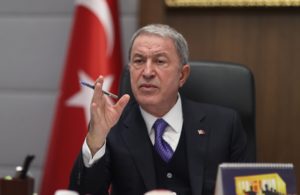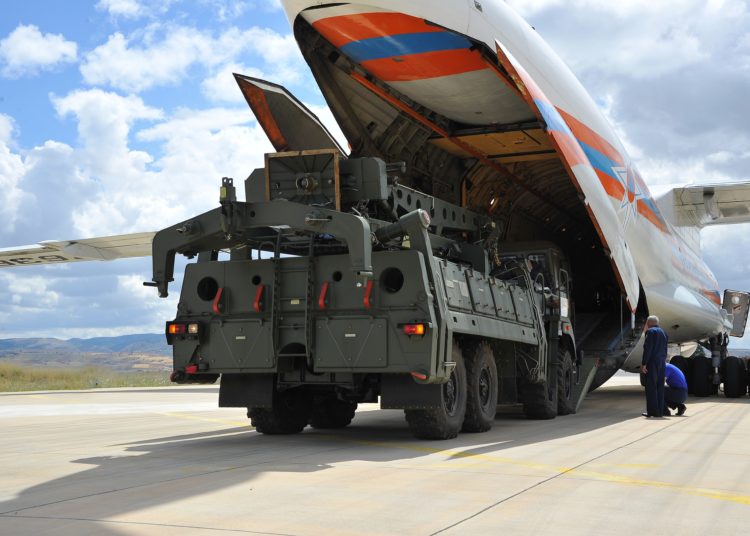Abdullah Bozkurt/Stockholm
Turkey has decided to place the long-range S-400 missile system it purchased from Russia’s arms export agency Rosoboronexport in a storage facility rather than activating it and deepening the rift it faces with the US and risking further sanctions.
The revelation that the missiles are stored at an unknown location was made in a speech by Defense Minister Hulusi Akar during deliberations at parliament’s Planning and Budget Committee on November 22, 2022.
Akar did not disclose the location where the missiles were stored but claimed that they were ready to be deployed in the event of a threat and once the decision was made where the air defense system would be positioned. His remarks indicated that the Turkish government has deferred plans to activate the S-400s and would not make a decision on where to deploy them any time soon.
He also talked about the time required for the S-400 system to be transported and deployed as he tried to refute the opposition’s accusations that the missiles are nothing more than useless salvage.
“The S-400 requires transport time [for deployment], and after that — 30 minutes according to the manual, but I’ll say an hour — it would be ready in the location to where it was shipped. Everything is ready, so there’s no problem there,” Akar said.
When similar questions were raised by the same committee a year earlier, Akar invoked “state secrets” and said he would not reveal any details about the Russian missiles.
Minutes from the parliamentary committee meeting that show Turkey decided to not activate the Russian missiles:
Turkey and Russia signed a contract on April 11, 2017 for two S-400 systems worth around $2.5 billion. The first delivery of S-400 missile batteries that started on July 12, 2019 and was completed in September 2019 did not provide Turkey with any technology transfer. Russia simply sent two S-400 batteries and more than 120 long-range missiles as part of the agreement along with experts to train Turkish soldiers on how to operate them. The second batch has yet to be delivered.
The insistence of President Recep Tayyip Erdoğan’s government on proceeding with the acquisition of the Russian arms came at a high cost for Turkey. Ankara was not only expelled from the global F-35 Joint Strike Fighter program but also incurred a series of sanctions, embargoes and restrictions on the procurement of defense items from the US and other NATO allies.

The Turkish defense industry was set to benefit immensely from the F-35 program in terms of technology transfer and the sale of parts. Some 1,000 parts for F-35 fighter jets were being manufactured by various Turkish companies until the US and its partners decided to source them from other countries after the Erdoğan government’s purchase of the Russian missiles. Turkey has also lost the nearly $11 billion that it expected to earn from sale of these parts.
In August 2022 Russian officials claimed Turkey had signed for the purchase of another batch of S-400 missiles, but that claim was denied by Ankara, which stated that no new agreements had been made for the purchase of new missiles.
The US has repeatedly warned Turkey that activating the S-400 missiles or buying a second batch would trigger heavier sanctions under the Countering America’s Adversaries through Sanctions Act (CAATSA). On December 14, 2020 the US imposed sanctions on Turkey’s Presidency of Defense Industry (Savunma Sanayii Başkanlığı, SSB) and certain of its principal officers over the S-400 procurement.
The US Treasury’s Office of Foreign Assets Control (OFAC) has added SSB President İsmail Demir, SSB Vice President Faruk Yiğit, Serhat Gençoglu, head of the SSB’s Department of Air Defense and Space, and Mustafa Alper Deniz, program manager for the SSB’s Regional Air Defense Systems Directorate, to its “Specially Designated Nationals and Blocked Persons List.”
The penalties freeze any assets the four officials may have in US jurisdictions and bar their entry into the US. They also include a ban on most export licenses and authorizations to the agency.












